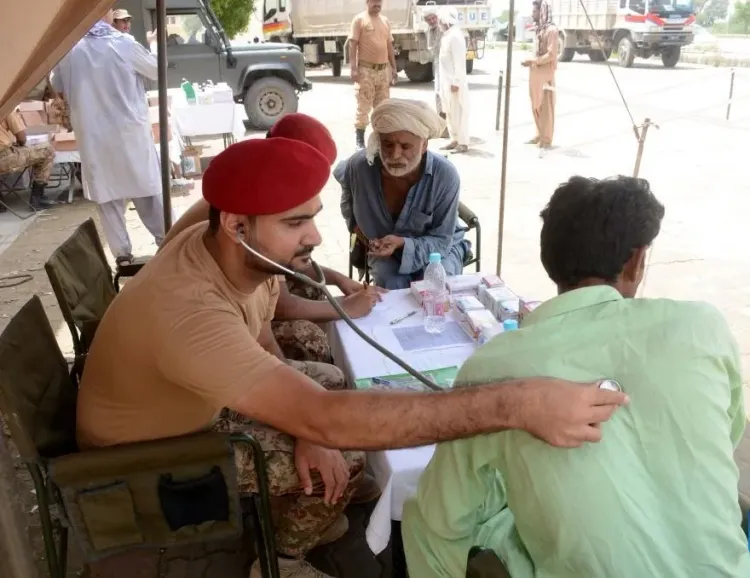Pakistan's Rising Concerns Over Pharmaceutical Supply Amid Trade Suspension with India

Synopsis
Key Takeaways
- Emergency preparations underway for pharmaceutical supplies.
- Trade ties with India suspended post-terror attack.
- 30-40% of Pakistan's pharmaceutical needs depend on India.
- Seeking alternative sources from China, Russia, and Europe.
- Health experts warn of potential medicine shortages.
Islamabad, April 26 (NationPress) Pakistani health authorities have initiated urgent preparations to secure pharmaceutical supplies from alternative sources following the cessation of trade relations with India in the aftermath of the Pahalgam terror attack.
This action comes amid mutual accusations and countermeasures from both India and Pakistan, including the closure of borders, trade, diplomatic relations, the suspension of the Indus Waters Treaty (IWT), and the shutdown of airspace for India by Pakistan. Additionally, both nations have canceled visas for each other's nationals and imposed tight deadlines for their respective citizens to exit.
The Drug Regulatory Authority of Pakistan (DRAP) has convened an emergency meeting to discuss and devise contingency measures to secure pharmaceutical supplies that were previously imported from India from other sources.
"There has been no formal notification regarding the ban's impact on the pharmaceutical sector. However, contingency plans are already in place," a senior DRAP official remarked.
"Following the 2019 crisis (post the Pulwama attack), we had begun preparing for such scenarios. We are currently exploring alternative options to fulfill our pharmaceutical requirements," he added.
The suspension of medical trade supplies from India to Pakistan will significantly affect the pharmaceutical industry, as approximately 30 to 40 percent of the country’s pharmaceutical needs, particularly raw materials including Active Pharmaceutical Ingredients (API) and advanced therapeutic products, are dependent on imports from India.
"In light of the trade suspension with India, Pakistan is now pursuing alternative sources from China, Russia, and several European nations to meet its pharmaceutical needs. Our objective is to ensure the uninterrupted availability of essential medical supplies, including anti-rabies vaccines, anti-snake venom, cancer treatments, monoclonal antibodies, and other vital biological products," the DRAP official stated.
Health experts have expressed their concerns, warning that the availability of medicines, raw materials, and medical ingredients is essential for the healthcare sector. They highlighted that if immediate actions are not taken to address the consequences of the trade suspension, the impending challenges will worsen.
"There is a growing fear that disruptions in the supply chain could result in critical shortages. We have held discussions with DRAP and the Ministry of Commerce officials regarding the trade suspension. We urged them to exempt the pharmaceutical sector from the ban, as many life-saving products rely exclusively on raw materials sourced from India," stated Tauqeer-ul-Haq, Chairman of the Pakistan Pharmaceutical Manufacturers Association (PPMA).
The PPMA has also appealed to Pakistan’s Special Investment Facilitation Council (SIFC), requesting that they exempt the pharmaceutical and health-related trade from the ban to safeguard the lives of patients.










